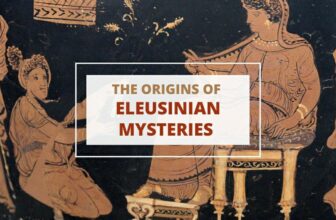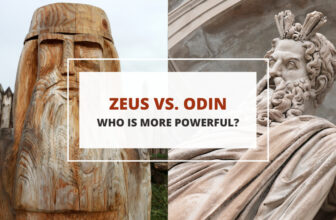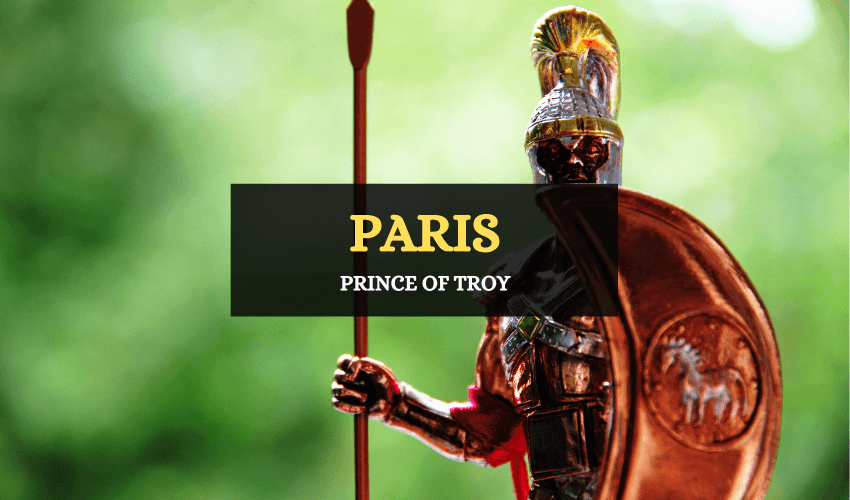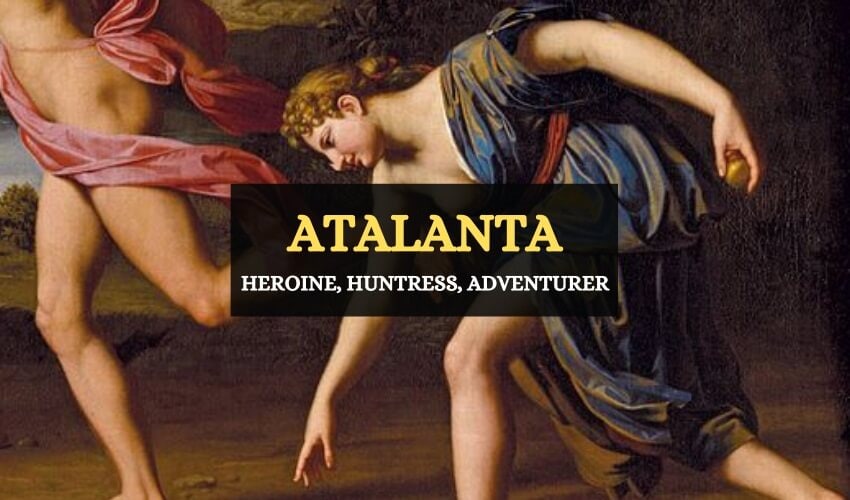
Table of Contents
Atalanta was one of the most renowned Greek Heroines, known for her daring behaviour, immeasurable strength, hunting skills, and boldness. Atalanta’s name comes from the Greek word Atalantos, which means “equal in weight”. This name was given to Atalanta as a reflection of her strength and courage, which matched even the greatest Greek heroes.
In Greek mythology, Atalanta was best known for her participation in the Claydonian Boar hunt, the footrace, and the quest of the golden fleece. Let’s take a closer look at Atalanta and her many memorable adventures.
Atalanta’s Early Years
Atalanta was the daughter of Prince Iasus and Clymene. She was abandoned at an early age by her parents, who desired a son. The disappointed Iasus left Atalanta on top of a mountain, but luck was in Atalanta’s favour, and she was discovered by a bear, who took her, and taught her how to survive in the wild.
Atalanta then chanced upon a group of hunters, who decided to take her along with them. As she lived and hunted with them, Atalanta’s swiftness, intuition, and strength were further honed.
From when she was a young girl, Atalanta was always clear about her choices and decisions. A prophecy in her name revealed an unhappy marital life, therefore, Atalanta made a vow to goddess Artemis, declaring that she would forever be a virgin. Although there were many suitors who fell for Atlanta’s beauty, none could ever match her strength or skills and she was rejected all advances from potential suitors.
Atalanta and the Claydonian Boar hunt
The turning point in Atalanta’s life was the Claydonian Boar hunt. Through this event Atalanta gained wide recognition and fame. The Claydonian Boar was sent by Goddess Artemis, to destroy crops, cattle, and men, as she was angered and humiliated at being forgotten in an important ritual.
Under the leadership of the famous hero Meleager, a group was formed to hunt down and kill the savage beast. Atalanta desired to be a part of the hunting group, and much to the dismay of all, Meleager agreed. He couldn’t refuse a woman whom he desired and loved. To the surprise of all, Atalanta became the first person to wound the boar and draw its blood. The injured animal was then killed by Meleager, who gave it’s hide to Atalanta as a mark of affection and respect.
All the men of the hunt, including Meleager’s uncles, Plexippus and Toxeus, couldn’t accept Meleager’s gift to Atalanta. Meleager’s uncles tried to forcefully take the skin from Atalanta, and as a result, Meleager killed them both in a fit of rage. Althaea, Meleager’s mother, grieved for her brothers, and lit up a charmed log for revenge. As the log and wood burned, Meleager’s life slowly ended.
Atalanta and the Quest for The Golden Fleece
Atalanta was one of the most prominent figures in the quest for the golden fleece. As a huntress and adventurer, Atlanta joined the Argonauts, to search for the winged ram who had the golden fleece. As the sole female member of the quest, Atalanta sought protection from goddess Artemis. The quest was led by Jason, and included many brave men such as Meleager, whose heart yearned for Atalanta.
According to one source, Atalanta joined the quest only to be near Meleager, whom she loved. Although Atalanta couldn’t break her vow to goddess Artemis, she still wanted to be in the presence of Meleager. It’s said that during the voyage, Atalanta hardly let Meleager out of her sight.
During the voyage, Atalanta suffered a grievous physical injury, and was healed by Medea, the daughter of King Aeëtes. Medea played an important role in the quest of the golden fleece.
Atalanta and Hippomenes
After the events of the Calydonian boar hunt, Atalanta’s fame spread far and wide. Her estranged family came to know about Atalanta and reunited with her. Iasus , Atalanta’s father, believed it was the right time to find a husband for Atalanta. Atalanta agreed to the proposal, but set her own terms and conditions. Atalanta would marry, but only if the suitor could outrun her in a footrace.
Many suitors died in the attempt of beating Atalanta, save one, the grandson of Poseidon, god of the seas. Hippomenes received the help of Aphrodite, goddess of love, as he was fully aware that he couldn’t outrun Atalanta otherwise. Aphrodite, who had a soft corner for Hippomenes, gifted him three golden apples which would prevent Atalanta from finishing first.
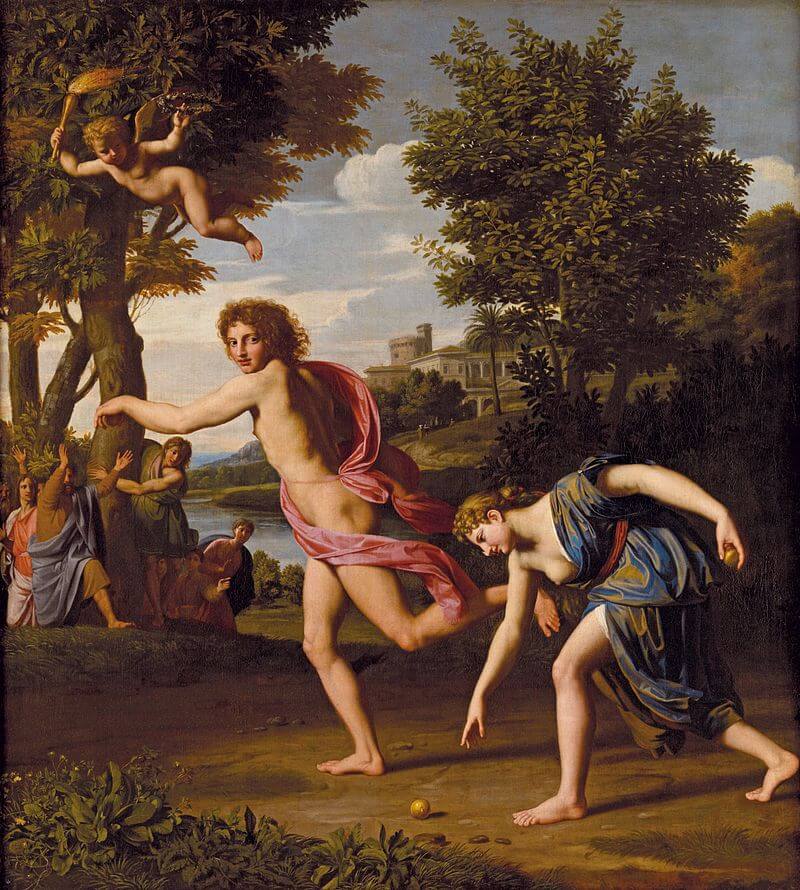
What Hippomenes had to do was to distract Atalanta during the race with the golden apples, which would slow her down. Every time Atalanta began to outstrip him during the race, Hippomenes would throw one of the three apples. Atalanta would run after the apple and pick it up, thus giving Hippomenes time to race ahead.
Eventually, Atalanta lost the race and had to concede defeat. She then married Hippomenes. Some sources state that Atalanta lost deliberately, because she loved Hippomenes, and wanted him to defeat her. Either way, Atalanta and Hippomenes settled down and she eventually gave birth to a son, Parthenopaios.
Atalanta’s Punishment
Unfortunately, Atalanta and Hippomenes couldn’t have a happy life together. Several versions exist of what happened to the couple. In some versions, either Zeus or Rhea, turned the couple into lions after they had defiled the sanctity of a temple by having sex in it. In another account, Aphrodite was the one who turned them into lions, for not giving her due respect. Out of pity, however, Zeus converted Atalanta and Hippomenes into constellations, so that they remain united in the skies.
Why is Atalanta Important?
In history, there aren’t many female figures who are lauded for their strength and hunting prowess. Atalanta stands out for venturing into territory typically reserved for men. She makes her mark and commands respect by being herself. As such, Atalanta represents:
- Being true to yourself
- Fearlessness
- Strength
- Speed
- Female empowerment
- Pursuit of excellence
- Individualism
- Independence

Cultural Representations of Atalanta
Atalanta has been included and incorporated into several books, movies, songs, films, and operas. The famous Roman poet, Ovid, wrote about Atalanta’s life in his poem Metamorphosis. W.E.B. DuBois, a social and civil rights champion, used the character of Atalanta to speak about black folk in his acclaimed book, Of the Wings of Atalanta. Atalanta has also featured in fantastical works such as Atalanta and the Arcadian Beast and Hercules: the Thracian wars.
Several famous Operas have been composed and sung about Atalanta. In 1736, George Handle wrote an opera titled Atalanta, focusing on the huntress’ life and deeds. Robert Ashley, the 20th century composer, also wrote an Opera based on Atalanta’s life titled Atalanta (Acts of God). In contemporary times, Atalanta has been envisioned in several modern dramas and plays.
Retellings of Atalanta can be found in television series and films. Atalanta has been reimagined in the 1974 series, Free To Be You and Me, wherein, Hippomenes finishes the footrace along with Atalanta, rather than ahead of her. Atalanta’s multi-dimensional character is also depicted in the television series Hercules: The Legendary Journeys, and the movie Hercules.
Facts About Atalanta
Atalanta’s parents are Iasus and Clymene.
Atalanta wasn’t a goddess but was instead a powerful huntress and adventuress.
Atalanta marries Hippomenes as she lost the foot race against him.
Atalanta is an emblem of female empowerment and strength. She’s known for her amazing hunting skills, fearlessness and swiftness.
They were angry that Atalanta and Hippomenes had had sex in a sacred temple of Zeus, which was an act of sacrilege and one that defiled the temple.
In Brief
The story of Atalanta is one of the most unique and interesting tales in Greek mythology. Her courage, steadfastness, and bravery has inspired several works of literature, drama, and art. Atalanta’s strength and resilience as a Greek heroine finds no other match, and she will always be seen as an emblem of empowerment.




